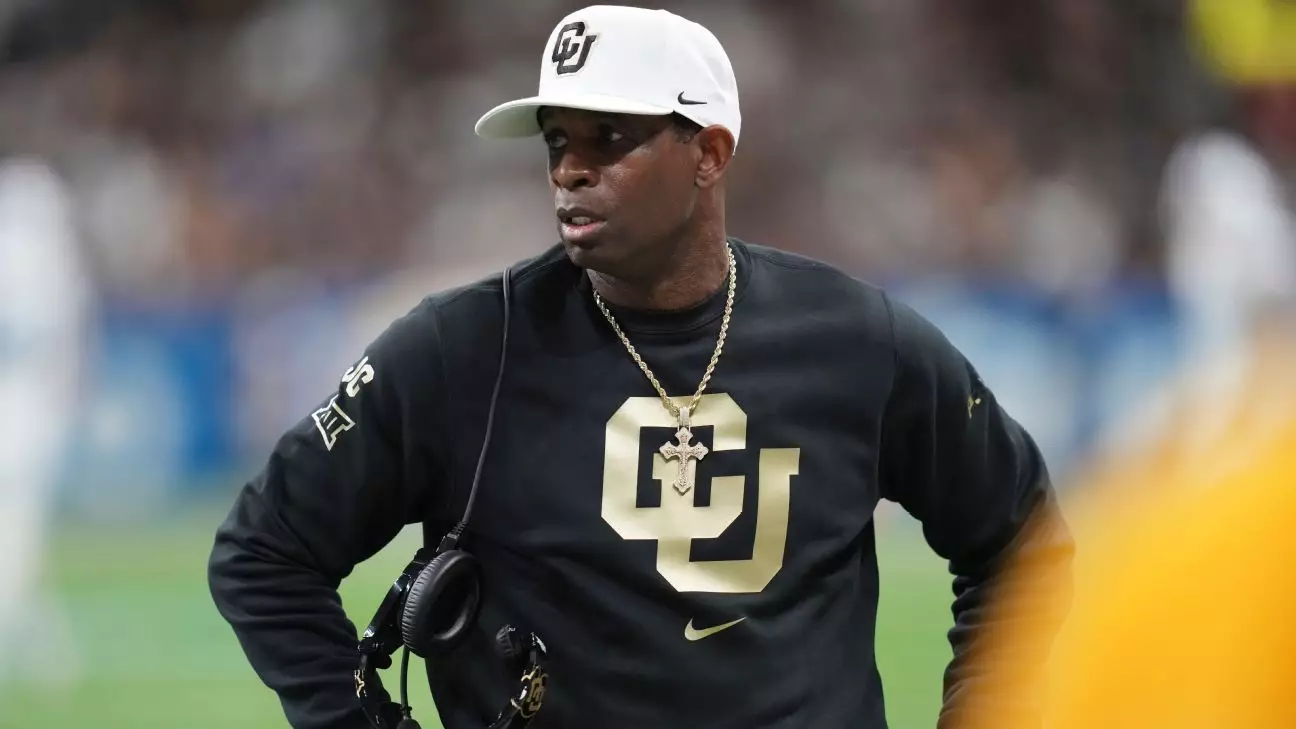Deion Sanders, one of the most electrifying figures in football history, has made a deliberate choice to remain as the head coach of the Colorado Buffaloes instead of pursuing a potential coaching opportunity with the Dallas Cowboys. Initially attracting attention from the Cowboys due to their head coaching vacancy, Sanders ultimately decided that the demands of professional football were not aligned with his vision or personal philosophy regarding coaching. On his TV talk show, “We Got Time Today,” Sanders articulated his reasons for this decision, revealing significant insights into his thought process and the dichotomy between the college and professional football landscapes.
Sanders’ coaching philosophy is firmly rooted in his values as an athlete and a mentor. He emphasized that the rigors and culture of today’s NFL practice sessions are simply not compatible with what he deems essential for fostering personal growth and development among players. His past as a player—rife with intensity and competitiveness—shapes his worldview; he knows firsthand how invaluable a positive and encouraging coaching approach can be. Acknowledging the challenges of the professional game, Sanders stated, “I couldn’t coach pro ball,” pinpointing a fundamental conflict between his ideals and the transactional nature of the NFL.
Conversations with former teammates, including legendary quarterback Troy Aikman, have revealed both nostalgia and critical examination of how the culture of football has evolved. Their shared experiences in the 1990s, highlighted by grueling practices and a strong emphasis on discipline, starkly contrast with the current dynamics seen across the league. While Aikman expressed how Sanders could have been an impactful choice for the Cowboys, he also lamented a missed opportunity—an opportunity that he believes could have reinforced the leadership role within the franchise.
The Cowboys’ coaching search eventually led to the promotion of Brian Schottenheimer, raising speculation about what could have been had Sanders received a formal interview. With Cowboys management seemingly overlooking Sanders, Aikman shared some disappointment, revealing how certain team members view this missed chance as a disservice to the organization. It indicates a potential disconnect between Sanders’ current standing in college football and the high regard he still commands from his peers in the professional league.
Deion Sanders’ tenure at Colorado has shown promising signs, with a record of 13 wins to 12 losses over two seasons. His ability to galvanize the team resulted in a 9-4 record last season and the crowning of standout cornerback-wide receiver Travis Hunter as a Heisman Trophy winner. This accomplishment not only speaks volumes about Sanders’ coaching prowess but also indicates his commitment to nurturing talent and the future of the sport in a way that resonates with younger athletes.
Sanders’ success in college football raises questions about the efficacy of his continued involvement in shaping young athletes versus the often impersonal structure of the NFL. His decision to forgo the NFL opens up broader conversations about the role of college sports in fostering talent while maintaining a personal touch in coaching that he finds essential.
As a veteran football personality who has often transcended the game with his magnetic persona, Sanders embodies a unique blend of on-field success and charismatic leadership. While his past glories in the NFL cannot be understated, it is his current iteration as a college coach that perhaps defines his legacy most profoundly. Through his work at Colorado, Sanders is not only contributing to the sport but also inspiring a new generation of players to chase excellence.
Conclusion: The narrative surrounding Deion Sanders is a vivid illustration of how personal philosophies in coaching can impact not just a team’s performance but its culture overall. His willingness to prioritize the development of young athletes over the allure of professional football opens a dialogue on values, leadership, and the future of the sport. As Sanders crafts his narrative away from the NFL spotlight, his commitment to Colorado positions him uniquely within the landscape of college football, ensuring that “Prime Time” remains an influential force in shaping both the game and its players.


Leave a Reply